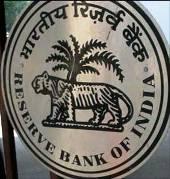 | « Back to article | Print this article |
 The year-end holiday spirit will certainly be missing this year at the Reserve Bank of India's headquarters on Mint Road.
The year-end holiday spirit will certainly be missing this year at the Reserve Bank of India's headquarters on Mint Road.
For Finance Minister P Chidambaram has just taken away the RBI's last reason to delay the final guidelines for new banking licences. In fact, the Banking Laws (Amendment) Bill, which the Lok Sabha passed on Tuesday and the Rajya Sabha is due to vote on Thursday, has given the central bank everything it asked for: greater regulatory oversight over banks, the ability to overrule boards and the power to inspect the books of associate companies of the promoter group -- its preconditions for new licences.
Though it's debatable whether power to supersede bank boards can adequately safeguard against the problems created by banks promoted by those with interests in other industries, the finance ministry has at least shed its reluctance to bulldoze the Reserve Bank of India.
The RBI can also take comfort from the ministry's decision to drop the clause allowing banks to trade in commodity futures.
The central bank was always uncomfortable with allowing speculative funds to flow into commodity derivatives when the regulator concerned lacks capacity and statutory powers.
The Bill, in fact, has left something on the table for all stakeholders.
Though the government has diluted its earlier proposal to allow voting rights in proportion to the investment of each shareholder, the increased cap for private banks takes away one long-standing grouse of investors: that they don't have their say over operations even if they make large investments.
There